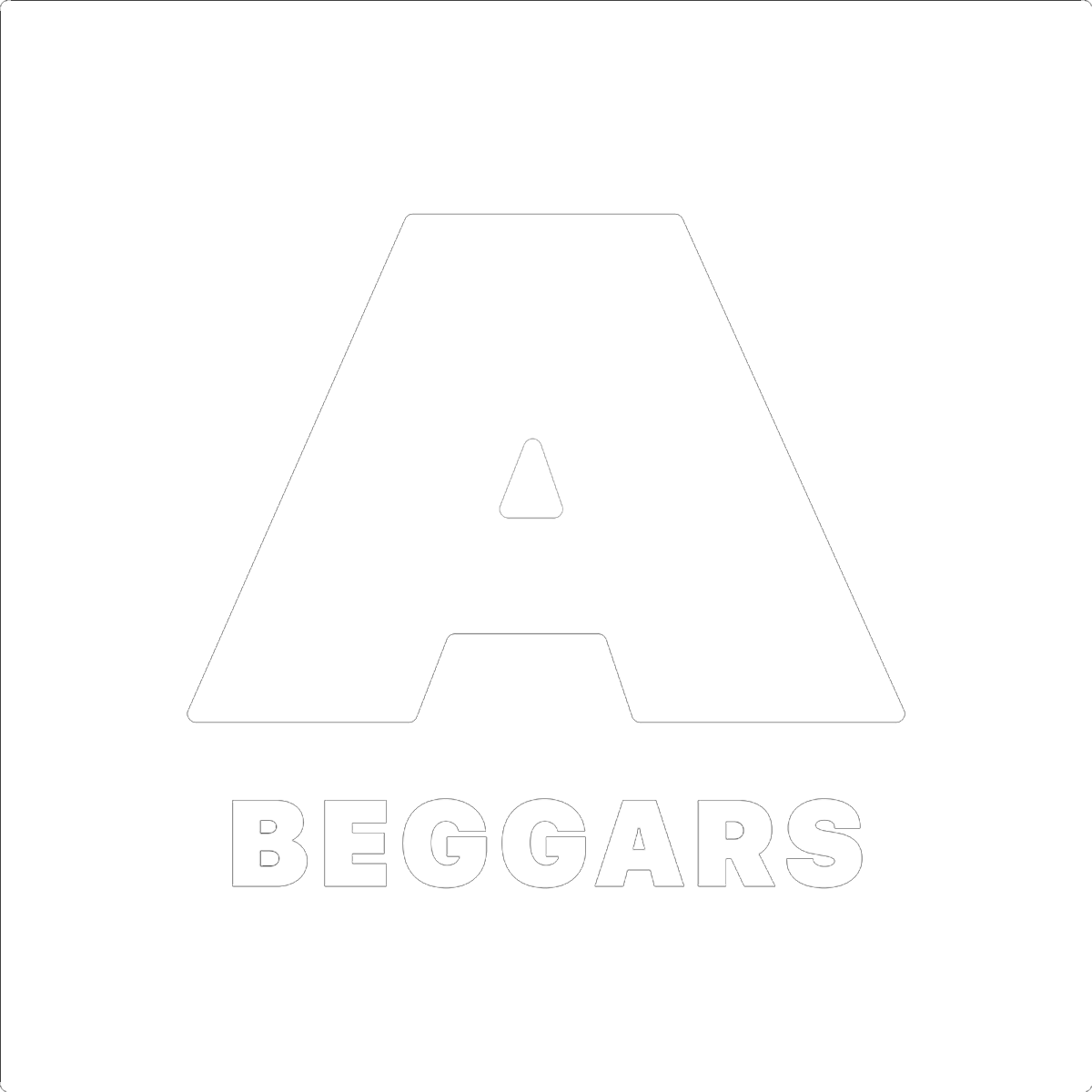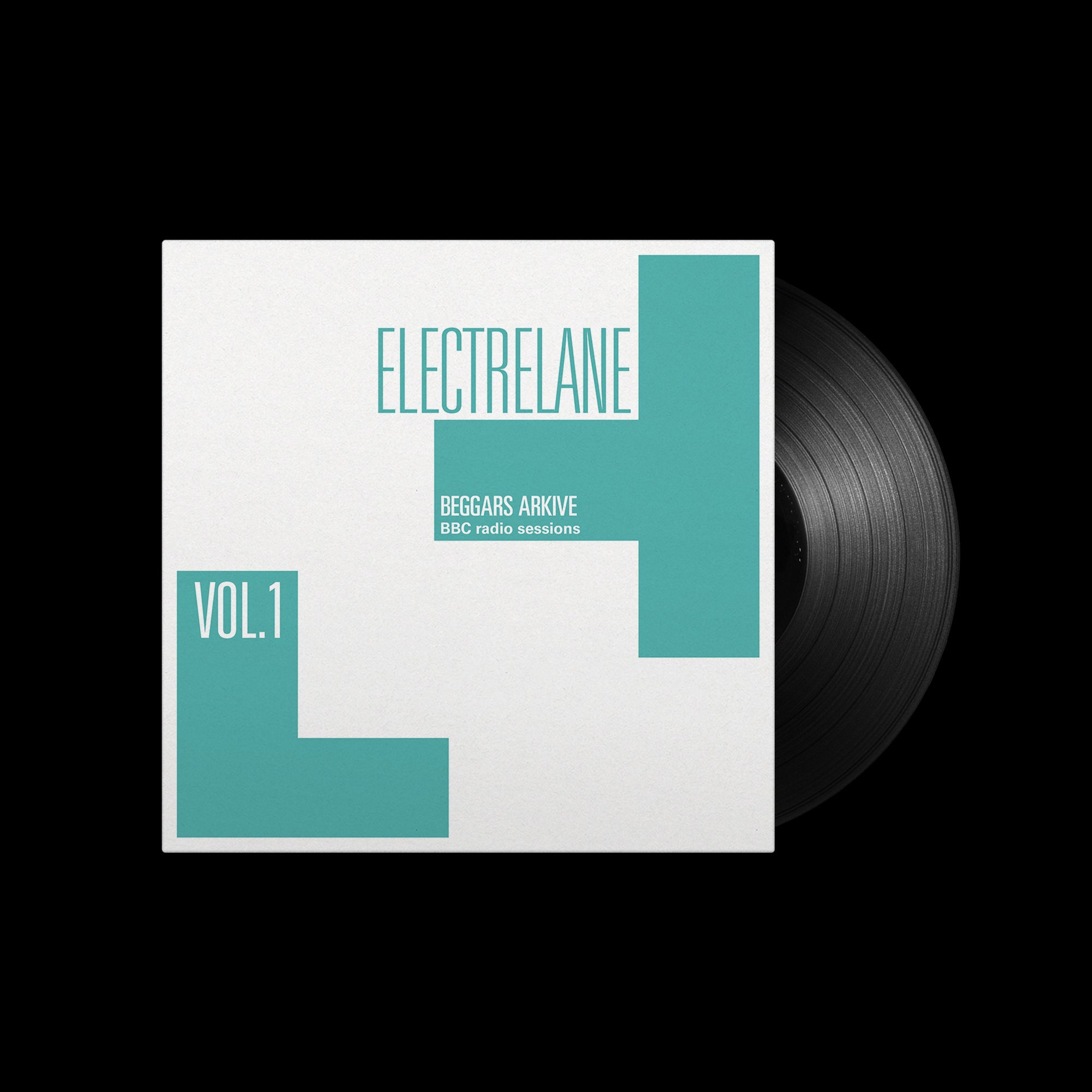Electrelane
Electrelane are: Verity Susman– piano/vocals/saxophone/guitar, Emma Gaze- drums, Mia Clarke- guitar, Ros Murray –bass)
Electrelane have never been a band to succumb to stereotypes, preferring instead to twist, break and turn upside down all expectations with every move. It’s what makes them such an interesting, diverse and continually prolific force.
Electrelane always say that they invented themselves at the beginning of 1998. It was the point that founders Verity Susman and Emma Gaze, then Brighton sixth formers, found a rehearsal space outside of Emma's bedroom, but the possibility of Electrelane predated that development by some years.
Emma, who had taken up drums at 15 (it was a good way to exert a presence in a large family) and played along to Buddy Holly tracks, had ransacked the record collection of her older siblings. Verity had been playing music since she was a child, and was already forming her own ideas about song structures and textures that had, as Electrelane's music soon proved, little parallel with anything that was happening elsewhere.
But first things first. The embryonic Electrelane were Verity, Emma, guitarist Debbie Ball and bassist Tracey Houdek. Tracey left after their first gig (she was pregnant) and, for a short time, Rupert Noble filled in on bass.
Early gigs were shambolic, Emma admits. They proved a fast learning curve. Things broke. They fixed them. Local gigs helped them hone the velocity of their instrumental music and, after Rachel Dalley took over bass duties in 1999, followed by guitarist Mia Clarke the next year, Electrelane had consolidated their line-up.
Yet even at this early stage, Electrelane were clear about their ideas. Specializing in densely textured instrumentals (vocals, if they existed at all, were mainly wordless and hidden in the music), the band's sound was one of infinite acceleration. Driven by a pounding rhythm section (Emma and Rachel), Debbie’s minimalist guitar and Verity's farfisa keyboards swelling the sound and providing toplines, the experience of Electrelane was one of sustained sonic drama. Small wonder they called their first single “Film Music.”
Formed in the dying days of the Britpop era and the aftermath of the Riot Grrrl movement, Electrelane had their own approach, as even their first recordings show. The raw power of their first three singles, “Film Music,” “Le Song” and “Gabriel” (all 2000) had a velocity that owed little to what was around at the time.
Immediately, the band were on a breakneck schedule. As the rest of Britain wallowed in post-millennial fatigue, Electrelane released their debut single “Film Music,” in January, on Skint's Indenial label. Sixth months later, “Le Song” followed on Fierce Panda, and in September they signed to distribution company 3MV, who would release Electrelane on their own label, Let's Rock! Records. The band already had an album ready to record, Rock It To The Moon, featuring songs written over the first two years since the band’s inception. Guitarist Debbie decided to leave and Mia, a young writer who'd been following the band since their early days, was asked to replace her. Almost immediately the new line-up went into the studio to record the album. It was finished by the end of the year, and released in April 2001.
The faith in their own potential is a constituent element of Electrelane's excitement. It is present in the dedication list on Rock It. The four name-checked their heroines: Patti Smith, Kathleen Hanna and Kim Gordon were among the musicians, but artists, politicians and writers also featured. “It was a thank-you list,” says Emma. “It was inspired a bit by Le Tigre's song, “Hot Topic,” but we just wanted to name these exceptional women. It's not necessarily always musicians who inspire us.”
It's an important point. The vertiginous excitement of the dedication list showed that, from its earliest days, Electrelane were a band with a focus on a broader picture. These aren't mere words: collaboration has always been fundamental to the band's vision. “Blue Straggler” (one of the singles from Rock It) became a soundtrack to a short film made by artists Eric Lesdema and Stephanie Bolt who also made the “Film Music” video by cannibalizing a Game Boy program; the band have worked with fine-artists Laura Mousavi-Zadeh and Francis Young to make films for gigs; Verity has recently worked with Finnish video artist Anu Pennanen and the quartet have long-term plans to fund Let's Rock as a label promoting other musicians, artists and projects.
With Electrelane's driving instrumentals earning the band a reputation as the young things to watch, high profile gigs with Sleater-Kinney, Death In Vegas, Broadcast, And You Will Know Us By The Trail Of Dead, Primal Scream, and Le Tigre followed, along with a US deal with radical indie label, Mr Lady. The release of Rock It To The Moon, followed by an EP, I Want To Be The President (April 2002) confirmed the rumors. By now, sell-out gigs were the norm as a swathe of art rocker fans of Godspeed You! Black Emperor! and the Velvets, pure popists in love with X-Ray Spex or the B52s, indie kids who'd seen through the packaging of Britpop, poured into venues from Athens to London to New York.
Real life intervened in 2002, when Verity returned to Cambridge for her final year as a philosophy undergraduate. Finals finished, Electrelane headed to Chicago to record The Power Out, their second album, with legendary producer Steve Albini. (He’d been a fan ever since Mia sent him a copy of Rock It.)
In 2005 they returned to Albini's studio for Axes, their third album. In 2007 they release No Shouts, No Calls, their fourth, and in late 2007 announced an indefinite hiatus.
Electrelane have never been a band to succumb to stereotypes, preferring instead to twist, break and turn upside down all expectations with every move. It’s what makes them such an interesting, diverse and continually prolific force.
Electrelane always say that they invented themselves at the beginning of 1998. It was the point that founders Verity Susman and Emma Gaze, then Brighton sixth formers, found a rehearsal space outside of Emma's bedroom, but the possibility of Electrelane predated that development by some years.
Emma, who had taken up drums at 15 (it was a good way to exert a presence in a large family) and played along to Buddy Holly tracks, had ransacked the record collection of her older siblings. Verity had been playing music since she was a child, and was already forming her own ideas about song structures and textures that had, as Electrelane's music soon proved, little parallel with anything that was happening elsewhere.
But first things first. The embryonic Electrelane were Verity, Emma, guitarist Debbie Ball and bassist Tracey Houdek. Tracey left after their first gig (she was pregnant) and, for a short time, Rupert Noble filled in on bass.
Early gigs were shambolic, Emma admits. They proved a fast learning curve. Things broke. They fixed them. Local gigs helped them hone the velocity of their instrumental music and, after Rachel Dalley took over bass duties in 1999, followed by guitarist Mia Clarke the next year, Electrelane had consolidated their line-up.
Yet even at this early stage, Electrelane were clear about their ideas. Specializing in densely textured instrumentals (vocals, if they existed at all, were mainly wordless and hidden in the music), the band's sound was one of infinite acceleration. Driven by a pounding rhythm section (Emma and Rachel), Debbie’s minimalist guitar and Verity's farfisa keyboards swelling the sound and providing toplines, the experience of Electrelane was one of sustained sonic drama. Small wonder they called their first single “Film Music.”
Formed in the dying days of the Britpop era and the aftermath of the Riot Grrrl movement, Electrelane had their own approach, as even their first recordings show. The raw power of their first three singles, “Film Music,” “Le Song” and “Gabriel” (all 2000) had a velocity that owed little to what was around at the time.
Immediately, the band were on a breakneck schedule. As the rest of Britain wallowed in post-millennial fatigue, Electrelane released their debut single “Film Music,” in January, on Skint's Indenial label. Sixth months later, “Le Song” followed on Fierce Panda, and in September they signed to distribution company 3MV, who would release Electrelane on their own label, Let's Rock! Records. The band already had an album ready to record, Rock It To The Moon, featuring songs written over the first two years since the band’s inception. Guitarist Debbie decided to leave and Mia, a young writer who'd been following the band since their early days, was asked to replace her. Almost immediately the new line-up went into the studio to record the album. It was finished by the end of the year, and released in April 2001.
The faith in their own potential is a constituent element of Electrelane's excitement. It is present in the dedication list on Rock It. The four name-checked their heroines: Patti Smith, Kathleen Hanna and Kim Gordon were among the musicians, but artists, politicians and writers also featured. “It was a thank-you list,” says Emma. “It was inspired a bit by Le Tigre's song, “Hot Topic,” but we just wanted to name these exceptional women. It's not necessarily always musicians who inspire us.”
It's an important point. The vertiginous excitement of the dedication list showed that, from its earliest days, Electrelane were a band with a focus on a broader picture. These aren't mere words: collaboration has always been fundamental to the band's vision. “Blue Straggler” (one of the singles from Rock It) became a soundtrack to a short film made by artists Eric Lesdema and Stephanie Bolt who also made the “Film Music” video by cannibalizing a Game Boy program; the band have worked with fine-artists Laura Mousavi-Zadeh and Francis Young to make films for gigs; Verity has recently worked with Finnish video artist Anu Pennanen and the quartet have long-term plans to fund Let's Rock as a label promoting other musicians, artists and projects.
With Electrelane's driving instrumentals earning the band a reputation as the young things to watch, high profile gigs with Sleater-Kinney, Death In Vegas, Broadcast, And You Will Know Us By The Trail Of Dead, Primal Scream, and Le Tigre followed, along with a US deal with radical indie label, Mr Lady. The release of Rock It To The Moon, followed by an EP, I Want To Be The President (April 2002) confirmed the rumors. By now, sell-out gigs were the norm as a swathe of art rocker fans of Godspeed You! Black Emperor! and the Velvets, pure popists in love with X-Ray Spex or the B52s, indie kids who'd seen through the packaging of Britpop, poured into venues from Athens to London to New York.
Real life intervened in 2002, when Verity returned to Cambridge for her final year as a philosophy undergraduate. Finals finished, Electrelane headed to Chicago to record The Power Out, their second album, with legendary producer Steve Albini. (He’d been a fan ever since Mia sent him a copy of Rock It.)
In 2005 they returned to Albini's studio for Axes, their third album. In 2007 they release No Shouts, No Calls, their fourth, and in late 2007 announced an indefinite hiatus.
Catalogue
Electrelane BBC Radio Sessions
Electrelane




